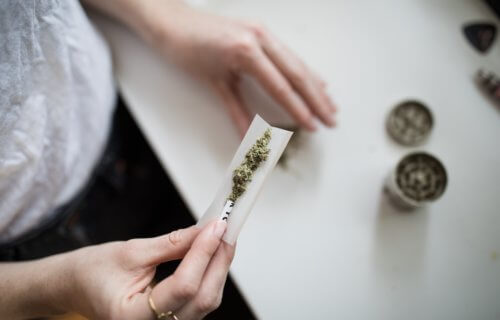NEW YORK — With thousands of deaths in the United States tied to opioid use each year, health experts continue to look for ways to get people off these powerful pain killers. Researchers from Columbia University say some believe cannabis, or marijuana, can serve as a substitute for opioids. Their new study however is debunking this myth, finding that marijuana doesn’t curb opioid use, it may trigger people to consume more.
A team at Columbia University Mailman School of Public Health studied over 200 participants in the greater New York area; testing the link between cannabis and non-medical opioid use. Researchers say this is the first report to examine opioid substitution directly.
Opioids are an extremely potent class of drug which reduce pain. Common prescription opioids include OxyContin, Vicodin, morphine, and methadone. Fentanyl is a synthetic opioid which is several times more powerful than other drugs; greatly increasing the chances of fatal overdoses. Illegally made fentanyl and heroine are among the narcotics fueling the opioid epidemic across the U.S.
Is marijuana fueling other drug use?
The study reviewed the links between marijuana and opioids for over 90 consecutive days. The participants were mostly men from urban areas, unemployed, unmarried, with a history of both substance misuse and pain. Over 13,271 combined days of observation, researchers found the group’s opioid use was at least as high on the days they used marijuana compared to days when participants did not consume cannabis. The results were similar regardless of how much pain the participants were feeling or not.
“Our results suggest that cannabis seldom serves as a substitute for non-medical opioids among opioid-using adults, even among those who report experiencing moderate or more severe pain,” says professor of epidemiology Deborah Hasin in a media release.
“In other words, our study suggests that cannabis is not an effective way to limit non-medical opioid use.”
Study authors add there were over two million people with an opioid use disorder in the U.S. in 2017. Illicit opioid use — which includes non-medical (unapproved) use of prescription drugs, synthetic opioids, and heroin — is the leading cause of adult overdose deaths in the country.
According to the Centers for Disease Control and Prevention, the number of overdose deaths actually dropped by four percent between 2017 and 2018. Despite this positive step, almost 70 percent of those 67,367 deaths have a link to opioid abuse.
The study appears in the journal Addiction.
Like studies? Follow us on Facebook!
